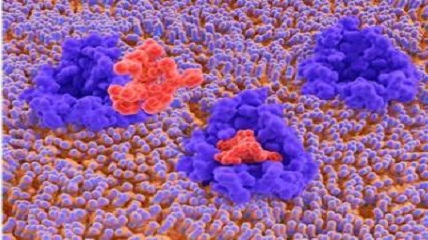Background of Oral Small Molecule Therapy for Lysosomal Storage Diseases
Lysosomal storage disease (LSD) is a congenital organelle disorder characterized by multisystemic and progressive manifestations, most of which are essentially neurological in nature. Intravenous enzyme replacement therapy (ERT) is the primary treatment for several LSDs, but does not address neurological issues because these recombinant protein, large molecular weight molecules do not effectively penetrate the blood-brain barrier (BBB). Small molecule drugs are being developed to treat the neurological manifestations of LSDs. So-called small molecules are low-molecular-weight synthetic compounds that can be taken orally and do not require activation of the immune system. Traditionally, the treatment of human diseases has been dominated by small molecule drugs. Due to their small size and typical physicochemical properties, small molecules can be effective enzyme inhibitors and metamorphic modifiers and can diffuse through cell membranes and reach different tissues, including the central nervous system.
 Fig. 1. Blood-brain barrier (BBB) in the context of CNS-targetting therapeutics. (Edelmann M J, et al., 2020)
Fig. 1. Blood-brain barrier (BBB) in the context of CNS-targetting therapeutics. (Edelmann M J, et al., 2020)
Solutions
Small molecules are most commonly used experimentally to modulate the function of protein targets and to assess the outcome. New strategies based on small molecules are now available as an alternative to or complementary to enzyme replacement therapies for LSDs. Our team of experts with extensive knowledge of lysosomal biology has successfully mastered small molecule synthesis techniques that allow rapid modification of chemical structures and systematic improvement of their properties. We are focused on the development of antagonistic or agonistic non-antigenic small molecules for LSDs against intracellular and extracellular targets, including pharmacological chaperones, modulators of proteostasis, substrate reduction therapeutics, and drugs that increase gene expression by inhibiting translation termination.
With years of experience in drug development strategies for lysosomal storage diseases, CD BioSciences offers customized small molecule-based therapeutic solutions for LSDs.

Substrate Reduction Therapeutic Solutions for LSDs
We offer customized substrate reduction therapeutic strategies to reduce their flux to lysosomes by developing small molecule inhibitors of enzymes involved in substrate biosynthesis.

Pharmacological Chaperones Therapeutic Solutions for LSDs
In LSD, missense mutations cause abnormal folding of lysosomal enzymes, preventing them from reaching the lysosome and performing their functions. We develop chaperone molecules to help the protein fold into the proper conformation.

Proteostasis Regulators Solutions for LSDs
Proteostasis is a complex network that controls protein synthesis, folding, transport, aggregation and degradation. We develop proteostasis modulators as small molecule drugs to regulate the capacity of this network.

Stop-Codon Read-Through Enhancement Solutions for LSDs
Many patients with LSD have nonsense mutations in one or both alleles of the gene encoding the lysosomal enzyme, resulting in a premature stop codon. We attempt to develop small molecules that inhibit translation termination to increase gene expression.
Properties of Small Molecules as Potential Therapeutic Options for LSDs
- Oral route of administration.
- Modular structure and easy access by chemical synthesis.
- Design of suitable reversible chemical modifications.
- High shelf-life stability.
- Ability to cross biological barriers and modulate a range of different biological targets.
- Do not form drug antibodies.
- For immunomodulation.
CD BioSciences' mission is to provide preclinical oral small molecule therapeutic strategies for lysosomal storage diseases that provide new ideas for drug discovery. We look forward to collaborating with you in the discovery of innovative LSD therapeutic strategies. If you are interested in our solutions, please feel free to contact us.
Reference
- Edelmann M J, Maegawa G H B. (2020) CNS-targeting therapies for lysosomal storage diseases: current advances and challenges[J]. Frontiers in molecular biosciences. 7: 559804.

